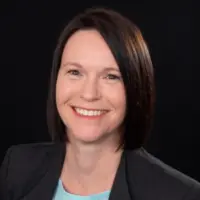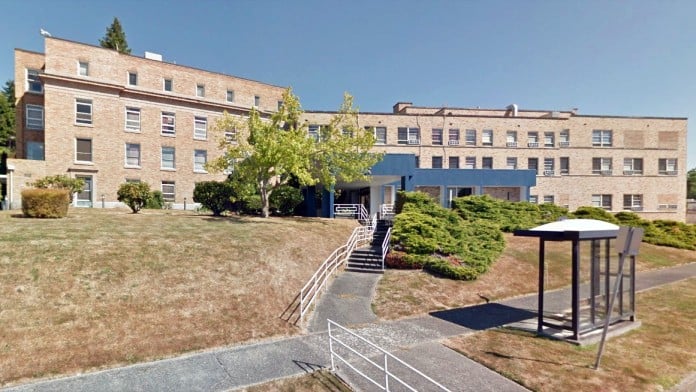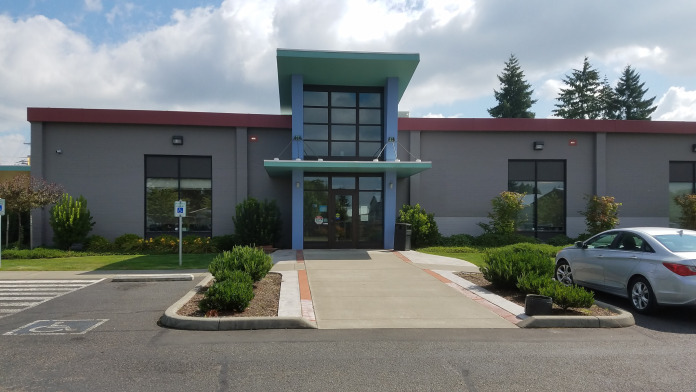Pretty lame care for people in crisis centers that hires unwise advocates to say they are "helping youth". They only want your money!
About Behavioral Health Resources
Behavioral Health Resources Rehab provides treatment for substance use and co-occurring mental health disorders. They offer services in multiple Washington counties. One of the clinic locations is on 8th Street in Hoquiam, Washington in Grays Harbor County. The 8th Street location treats children and adults. The organization’s mission is to support and strengthen families and individuals through substance use and behavioral health disorder recovery.
Finances shouldn’t be an obstacle when seeking treatment here. The facility accepts private health insurance. They also take Medicare, Medicaid, Community Mental Health Block Grants, and other government funds.
In addition to regular outpatient substance use and mental health treatment, the clinic provides a special program called Recovery Integrated Treatment Services (RITS). This program includes clinicians and case managers who are certified to treat addictions and other behavioral health conditions. If you’re struggling with serious substance use and behavioral health issues then you may be eligible for this program. RITS gives clients intensive substance use treatment and case management in the office and out in the community. They customize treatment based on individual needs.
Clients in RITS attend daily groups that focus on harm reduction and recovery. The curricula include relapse prevention and dialectical behavior therapy skills including emotion regulation, distress tolerance, mindfulness, trauma support, anger management, and relationship skills. Clients receive psychoeducation regarding the symptomology and impact of substance use concurrent with mental and behavioral health issues.
Behavioral Health Resources has a unique program called New Journeys. This program provides early intervention for clients in their first episode of psychosis. This is for individuals ages 15-40 experiencing a first episode of psychosis, not induced by intoxicants, for at least a week and up to two years.
The goal of the program is to help individuals get back on track from their first episode of psychosis. Clients receive resiliency therapy, peer support, family support, employment support, and medication management. Treatment is multiple times per week in your home, office, or the community. Clients can get support and treatment for up to two years.
Latest Reviews
Rehab Score
Other Forms of Payment
Self-pay involves paying for treatment out of your own pocket. You can use savings or credit, get a personal loan, or receive help from family and friends to fund your treatment. If you don't have insurance or your insurance plan doesn't cover a specific program, self-pay can help ensure you still get the care you need.
Financial aid can take many forms. Centers may have grants or scholarships available to clients who meet eligibility requirements. Programs that receive SAMHSA grants may have financial aid available for those who need treatment as well. Grants and scholarships can help you pai for treatment without having to repay.
Medicare is a federal program that provides health insurance for those 65 and older. It also serves people under 65 with chronic and disabling health challenges. To use Medicare for addiction treatment you need to find a program that accepts Medicare and is in network with your plan. Out of pocket costs and preauthorization requirements vary, so always check with your provider.
Medicaid is a state based program that helps lower-income individuals and families pay for healthcare. Medicaid covers addiction treatment so those enrolled can use their coverage to pay for rehab. When a program accepts Medicaid the client often pays very little or nothing out of their own pocket.
Addiction Treatments
Levels of Care
Outpatient Programs (OP) are for those seeking mental rehab or drug rehab, but who also stay at home every night. The main difference between outpatient treatment (OP) and intensive outpatient treatment (IOP) lies in the amount of hours the patient spends at the facility. Most of the time an outpatient program is designed for someone who has completed an inpatient stay and is looking to continue their growth in recovery. Outpatient is not meant to be the starting point, it is commonly referred to as aftercare.
Residential treatment programs are those that offer housing and meals in addition to substance abuse treatment. Rehab facilities that offer residential treatment allow patients to focus solely on recovery, in an environment totally separate from their lives. Some rehab centers specialize in short-term residential treatment (a few days to a week or two), while others solely provide treatment on a long-term basis (several weeks to months). Some offer both, and tailor treatment to the patient's individual requirements.
Treatments
Many of those suffering from addiction also suffer from mental or emotional illnesses like schizophrenia, bipolar disorder, depression, or anxiety disorders. Rehab and other substance abuse facilities treating those with a dual diagnosis or co-occurring disorder administer psychiatric treatment to address the person's mental health issue in addition to drug and alcohol rehabilitation.
Mental health rehabs focus on helping individuals recover from mental illnesses like bipolar disorder, clinical depression, anxiety disorders, schizophrenia, and more. Mental health professionals at these facilities are trained to understand and treat mental health issues, both in individual and group settings.
Programs
Adult rehab programs include therapies tailored to each client's specific needs, goals, and recovery progress. They are tailored to the specific challenges adult clients may face, including family and work pressures and commitments. From inpatient and residential treatment to various levels of outpatient services, there are many options available. Some facilities also help adults work through co-occurring conditions, like anxiety, that can accompany addiction.
Young adulthood can be an exciting, yet difficult, time of transition. Individuals in their late teens to mid-20s face unique stressors related to school, jobs, families, and social circles, which can lead to a rise in substance use. Rehab centers with dedicated young adult programs will include activities and amenities that cater to this age group, with an emphasis on specialized counseling, peer socialization, and ongoing aftercare.
Recovery is most successful when clients feel accepted and validated by their peers and treatment providers. Facilities that offer LGBTQ-inclusive programming are committed to creating a safe space where everyone can grow and recover without fear of judgment or discrimination. They will have dedicated policies in place to create a safe and supportive environment that fosters free expression.
Serving in the military is both mentally and physically challenging, and can result in trauma that persists even after combat ends. Military programs are tailored to the specific and often complex needs of active duty personnel, veterans, and military families. Clients often access these programs through the U.S. Department of Veterans Affairs (VA).
Clinical Services
Group therapy is any therapeutic work that happens in a group (not one-on-one). There are a number of different group therapy modalities, including support groups, experiential therapy, psycho-education, and more. Group therapy involves treatment as well as processing interaction between group members.
Trauma therapy addresses traumatic incidents from a client's past that are likely affecting their present-day experience. Trauma is often one of the primary triggers and potential causes of addiction, and can stem from child sexual abuse, domestic violence, having a parent with a mental illness, losing one or both parents at a young age, teenage or adult sexual assault, or any number of other factors. The purpose of trauma therapy is to allow a patient to process trauma and move through and past it, with the help of trained and compassionate mental health professionals.
Research clearly demonstrates that recovery is far more successful and sustainable when loved ones like family members participate in rehab and substance abuse treatment. Genetic factors may be at play when it comes to drug and alcohol addiction, as well as mental health issues. Family dynamics often play a critical role in addiction triggers, and if properly educated, family members can be a strong source of support when it comes to rehabilitation.
Experiential therapy is a form of therapy in which clients are encouraged to surface and work through subconscious issues by engaging in real-time experiences. Experiential therapy departs from traditional talk therapy by involving the body, and having clients engage in activities, movements, and physical and emotional expression. This can involve role-play or using props (which can include other people). Experiential therapy can help people process trauma, memories, and emotion quickly, deeply, and in a lasting fashion, leading to substantial and impactful healing.
Staff

Laurie Tebo
CEO

Ian Harrel, LICSW, CMHS
COO

Linda Young
Medical Director

Tracey Lasley
Director of Quality Management & MIS

Eric Jensen
Director of Finance

Tiffany Taylor
Director of Adult Outpatient Services

Lauren Farmer
Director of Children, Youth, & Family Outpatient Services

Angela Crowley
Director of Grays Harbor Outpatient Services
Contact Information
205 8th Street
Hoquiam, WA 98550







